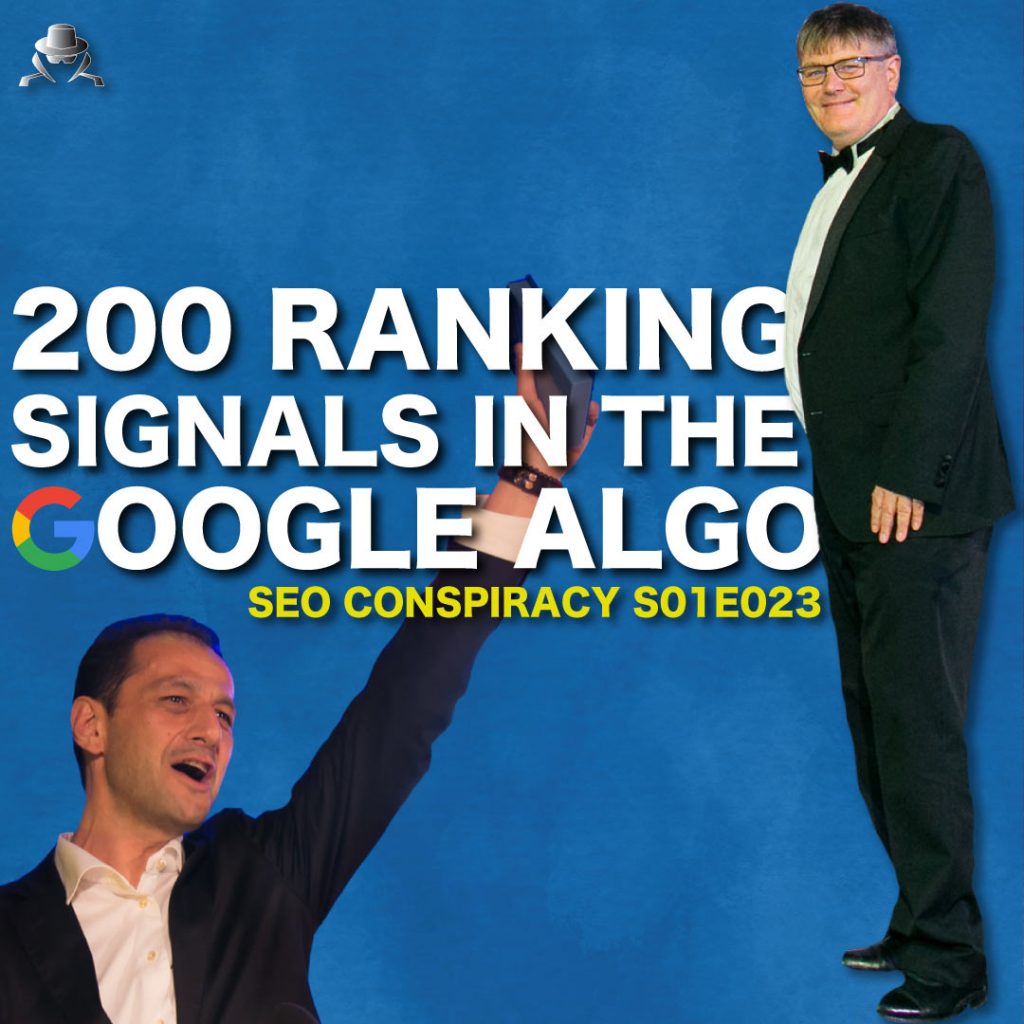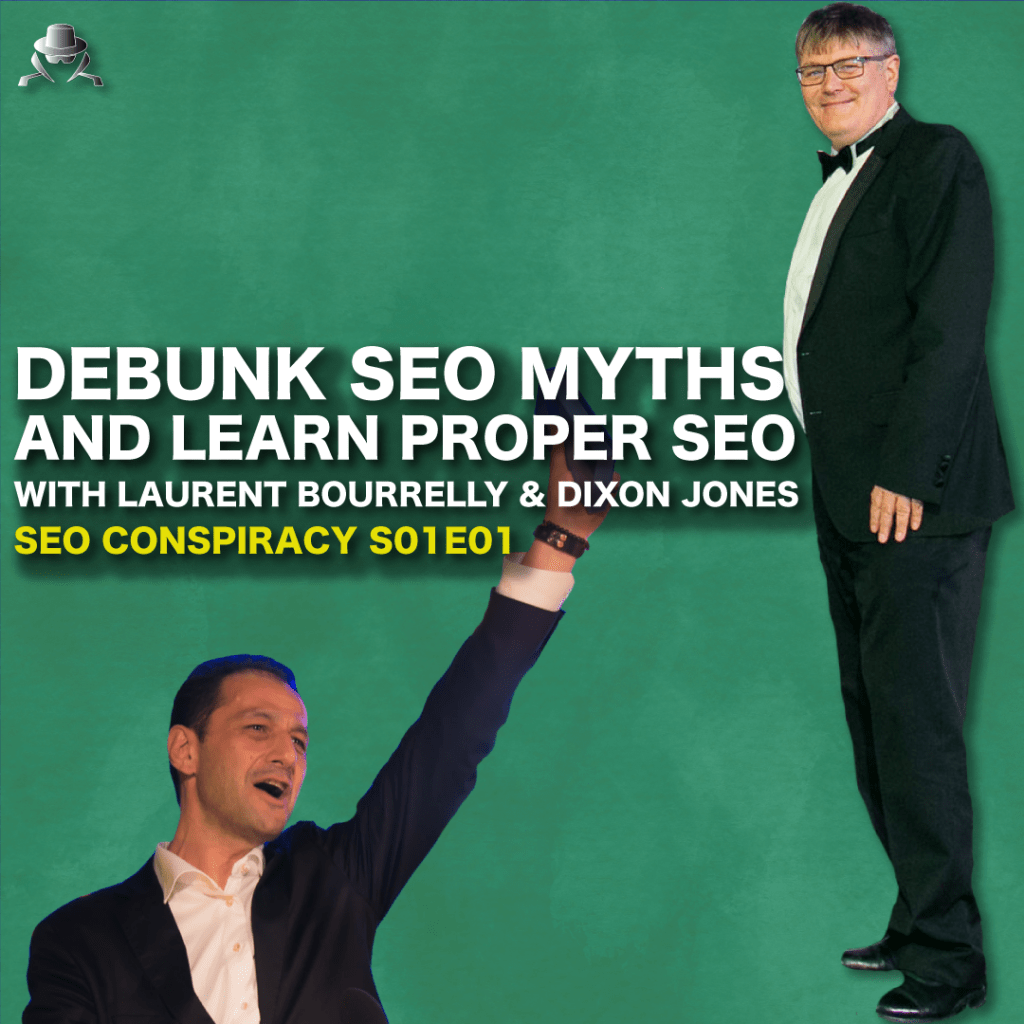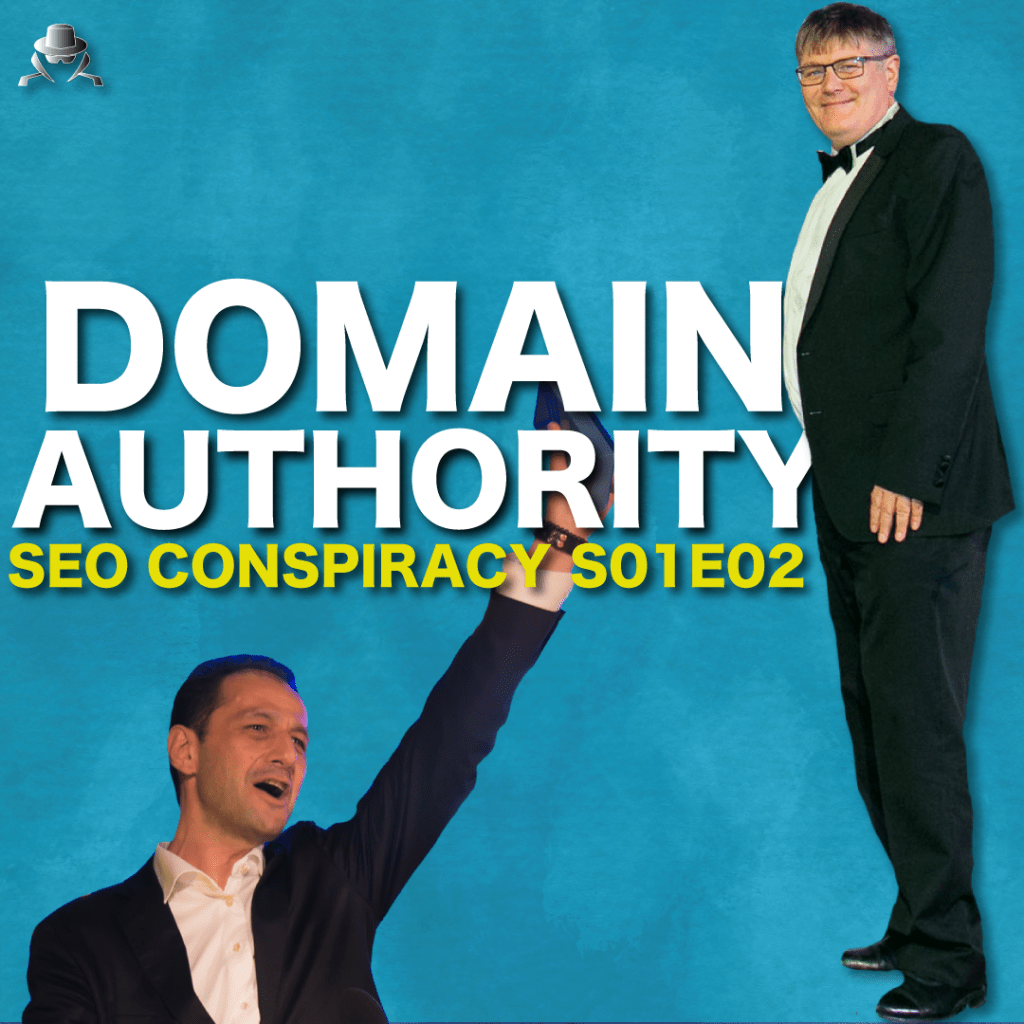If you want to reverse engineer Google you need to know how many ranking factors there are in the algorithm.
SEO CONSPIRACY E01E23
THE WORD OF DIXON JONES
This used to be on the corporate pages. Google used to say that they had 200 ranking signals, then they said 300 somewhere on the line but they said they had 200 factors for those pages but now they have gone from the internet.
The ones that they specifically were saying are the corporate pages but I think they say that really firm for the markets really to understand they’re not. SEOs know that there’s much much more than that. It’s not just that there’s more than 200 factors it’s just that the way that the machine learning works now I think just completely it just mean there’s endless factors really, there’s endless factors so the 200 becomes largely meaningless in a world where machine learning is going through web pages and having a look at things that might be.
The individuals now has has their own signals so when you search, for example, from Andorra, you’re gonna naturally see different things just by location than somebody in the UK.
Query study to make your strategy evolve
It’s fun when you study queries over years and years and you watch them and you see them evolve but if we get down to the facts, these 200 signals comes from somewhere, someone said something but it doesn’t matter.
What matters is people doing surveys with SEO to rank those ranking factors.
I mean it’s silly I think maybe it’s good to just to try and sort of bring them out so you can sort of highlight them all but to definitively say these are the 200 ranking factors you know is just a mad mad way to go about.
You can ask yourself a question and the most difficult is asking the right question then you can go right or left you go left by opening up, you don’t have the answer maybe you’ll never have an answer, that’s the way you investigate & you go right trying to fit the answers to your question, that’s what they are doing, they are building a path to say okay that’s where we are looking at, that’s what we want.
Now it’s the cognitive bias of confirmation let’s say okay I’m thinking that and that’s gonna make sense, that’s where I think I should go and we got to confirm. That way that’s not the right way to do it.
It doesn’t mean that some of it can’t be true or wrong it’s just not the right way to go about it.
Google does at least 7 changes a day in the algorithms
I think it’s, well the the approach changed as Google move towards a sort of a moral sort of neuro-linguistic or approach to search you know that whole thing changed and the a/b testing is that there’s a result , there’s the evidence out there of a CNBC reporter who reported that Google is making seven changes a day I worked it out it’s a seven chain.
They’re testing a lot more but they’re making, the algorithm is changing seven things a day. Either there’s more that’s a hell of a lot more than 200 factors.
The last numbers I looked at were in 2019 they said there was 300 something modifications and over 400 thousand tests and evaluations I mean they got hundreds of engineers working full-time on this day and even like you said before they saw me Thor we’re gonna stop everything during Christmas and we’re gonna pause and not push everything might not even make sense today because from a production level I don’t see how you can just press pause on.
I remember a long time ago, Matt Cutts, on a panel talked about the concept of Katrina so they were really, they weren’t pleased with the Katrina happened but they were very pleased that Katrina triggered back then where a long time ago of course query deserves freshness and it started the messaging from Katrina in the waves and the signals changed and that wasn’t a function of somebody going in there and changing the algorithm. It’s a function of the algorithm recognizing that there is a new surge demand or a new surge of interest, some of it and that was way way back. Imagine now that they’ve got the freebase and metaweb and they took in all those entities and they’ve fed those into the system as well you know, they really understand when you’re talking about magic, are you talking about the card game or you talking about the author.
The Smell of the Backlinks
I study queries like the e-cigarette right e-cigarettes are, it’s a new topic it didn’t exist before and I watch how Google try to understand what it was an event from a topical trust flow perspective for Majestic.
I was watching the backlinks. the smell of the backlinks was random then it moved to tobacco addiction then tobacco recreation and now it’s kind of okay is it tobacco/addiction tobacco/recreation as far as the smell of the backlinks.
You could argue quite easily as soon as it understands the concept of any topic and then that topic becomes a signal so there in lies twelve and a half million signals bc that’s how many entities was supposedly in Freebase when they bought it.
So you’ve gone from 200 to 12.5 million just with that potentially once Google understands a concept of topic then it changes the nature of its algorithms from a keyword based mentality to a string to thing based mentality.
As far as SEO, even before we didn’t care about content, it was title, tags and links, and backlinks. Inlinks came later but it was title tag and backlinks and we will just do backlinks with a machine like Xrunner it was a Russian tool it was like you have to change like txt files.
It looked like a Russian spaceship from the 70s but you could do up to two thousand links backlinks per minute, it was profiles of forums or soft.
Now an aggressive linking strategy would be one link every two or three days
From 2000 links a minute to one link every two to three days it’s a big change since penguin.
Now we got on page title tag is still very strong, the block of content is the element that I saw moving up in the game ten years ago it was not in the top five or things we took into account and now it’s really like top two and we introduced this whole concept of if you build inlinks, your internal linking strategy in a smart way. When I train an SEO I’m like okay try to rank not the 200 but the top five factors that seem to you the most powerful, if I optimize the title tag in a positive way how much is got a count out of 10. we’re probably going to give it 8 or 9/10 under in a positive way what about if the title tag is optimized in a bad way three times the keyword, too long, too short, well how much is going to impact negatively if it’s a bad title tag let’s say 8-9/10. If it’s a bad title then you got you move on to the second what’s the second? backlinks with anchor text. how much the weight if it’s good if it’s bad and by doing this exercise when you are beginner, you’re trying to make your own little sauce by saying you’re only little optimization tactic of how you need to manage those levers because you pull something it’s action-reaction.
You gotta be careful with what you say. If you’re gonna go out and say this is the absolutely truth, the gospel truth and you’re gonna say it loudly then it won’t be the gospel truth very long.
Furthermore when we go into this hole like when you read a title that says “how to increase your traffic by 725% in 10 days”.
This whole clickbait thing, what it should read is “how to increase your traffic but 722% in 10 days: Case Study”.
Now that’s proper it’s a case study, it’s interesting. It won’t make people think that it’s the proven strategy to rank.
Correlation doesn’t mean causality.
To wrap it up, 200 factors in fact it’s not it’s not even a countable number of factors anymore. It’s concepts continually lying against each other to produce the results and it’s better to take an approach from before, trying to do the proper job, what the algorithms want, what does Google want.
I’m what’s called a search engine hacker so chasing the algorithm I do it for fun if you do it for business, it won’t work.
There’s where you gotta build a business first. Make it easy for Google to follow, don’t be what Kristine calls an asshat: the one who puts his employees in danger, who does stupid things as far as SEO goes.
Listen to the podcast:
Watch the video
Latest posts



